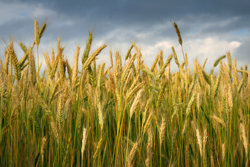Hope for winter wheat blight eradication
Fusarium head blight (FHB) is a disease which commonly attacks wheat crops contaminating them with dangerous mycotoxins which are detrimental to human and animal health. Diseased kernels are shrivelled and lower in weight. Consequently this also results in excessive yield loss for farmers and economic loss for the cereal industry. In an effort to alleviate the problem, the FUCOMYR project developed new selection methods. These included molecular markers for resistance genes and in vitro selection strategies for resistant germplasm. Over 100 varieties of winter wheat were used to test an artificial inoculation method which was done by spraying directly on the heads of the plant during anthesis (flowering period). Assessments of the applications were recorded and yearly scores were calculated in order for data from years and locations to be compared. The obtained information is available for interested breeders and breeding companies so that new genotypes resistant to FHB can be selected. As a result, these efforts can help support sustainable cereal production and competitively boost the cereal industry.







